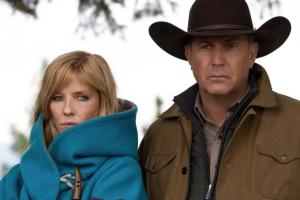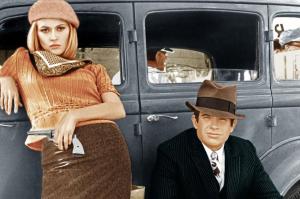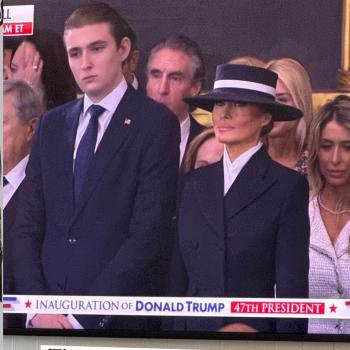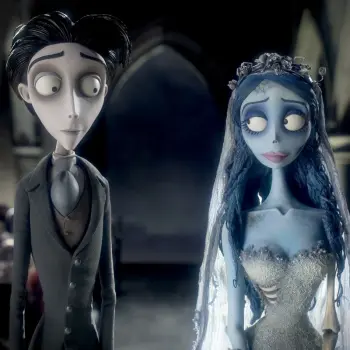To my best knowledge, I’ve only made up one conspiracy theory.
Once, on a family trip, my dad made friends with a person I’ll call William. They stayed up most of the night talking in a hotel lobby. My dad “witnessed” to William, who may have said the sinner’s prayer and converted to evangelical Christianity.
From there, the friendship took quick new directions. William and his wife, Caroline, traveled with my mom and dad the following summer. The summer after that, my parents visited William and Caroline in Dublin. (Have I mentioned that William is basically my age and that my dad has no sons?) After their third vacation together, I was ready to call foul. I’ve been used to sharing my parents since my younger sister showed up in the mid-80s–but I couldn’t fathom why their new “best friends” might be Irish people a generation younger. Privately, I floated the idea that maybe William and Caroline were like real-life prince scams: people who befriend the near- elderly in hope that, maybe, the elderly will grow attached to them and leave them some money. My teenage son floated a (to me) more wild scenario: William apparently loves everything Texas and cowboys and feels really happy to have my dad (a life-long Texan) as a close friend. I consoled myself with this novel, if strange, idea when Caroline bought a gold and garnet “Bella” ring (from local jeweler James Avery) to match my mother’s. She also began to call my mom her “Texas mum.” William bought cowboy boots.
I got to thinking about this bromance built on evangelical pieties and love of Texas as I was wondering whether Donald Trump’s recent indictment might finally alienate his base– which includes people like my hispanic, fourth-generation Texan dad, but also people like William from Dublin, Texas enthusiast, who can’t even vote for him.
I don’t think this run-in with the feds is going to damage Trump’s popularity. As Peter Wehner laments: “eight summers after Trump announced his first bid for the presidency, and we find him facing 71 felony counts while still 30 points above his nearest GOP rival.” But I do think this indictment might still matter. I wonder whether we may be witnessing what I’ll call the Bandit-ization of Evangelicalism.
Most evangelicals understand that Donald Trump is no altar boy. But this indictment– and his possible imprisonment–may still be an inflection point. Will evangelicals make excuses for their hero or might they trivialize Trump’s infractions? There is an important difference. One suggests he made necessary infractions. Another, that these infractions hardly matter.
In Jesus and John Wayne, Kristen Kobes du Mez demonstrates that white evangelicals have, for decades, allowed their leaders to “break the rules when necessary” (5). One of the book’s best examples features John Wayne and Pat Boone, TV cowboys, joining arms with Reagan to rally evangelical antagonism against communists.
But what if being on the wrong side of the law was not only necessary here and there, but also kind of fun? By definition, a bandit is a robber or outlaw belonging to a gang and typically operating in an isolated or lawless area. If a cowboy has to do cultural dirty work sometimes, an outlaw is allowed to have fun being bad. If Trump hardly has to explain these files in his ballroom, if he ends up laughing them off on the campaign trail, my hunch is that evangelicals are embracing an outlaw as their number one presidential candidate.
See, the cowboy is only one of a bigger group of dramatis personae who come to us courtesy of the saga of the American West. Historian Ferenc Szasz asserts the West provided the United States “with the core of its national imagery [and] spawned the heroes of popular culture, such as Tom Mix, Roy Rogers, and John Wayne.” In a list of such heroes (“ the trapper, the outlaw, the scout, the outlaw, the cowboy, the trooper, the rancher”) Szasz mistakenly mentions the outlaw twice (1990:497-8).
Now, there’s little doubt that the cowboy remains a heroic figure in the American imagination. In the very popular Peacock show Yellowstone, man’s man Kevin Costner is John Dutton, the patriarch of a powerful family of ranchers. A sixth-generation homesteader, Costner’s John Dutton controls the largest contiguous ranch in the United States. He “operates in a corrupt world where politicians are compromised by influential oil and lumber corporations and land grabs make developers billions.” Dutton’s children are pret ty terrible, but his least favorite child is the lawyer who went to Harvard. The tone of the show can range from cynical and sarcastic to tragic, but it is not funny. Thanks to its strong viewership in red states, the show is a raging success: it has spun its own universe of prequels and sequels.
ty terrible, but his least favorite child is the lawyer who went to Harvard. The tone of the show can range from cynical and sarcastic to tragic, but it is not funny. Thanks to its strong viewership in red states, the show is a raging success: it has spun its own universe of prequels and sequels.
In the Yellowstone ecosystem, violence is shown to be a necessary evil, whether to defend your family or your land or the existing social order, or simply to keep the peace. But in the more recent Tulsa King, Yellowstone creator Taylor Sheridan augments his storytelling to include a classic outlaw figure: the mafioso. His protagonist is Dwight ‘The General’ Manfredi –who has just done 25 years in prison. Manfredi is played by a (suprisingly) virile looking Sylvester Stallone. The tone of this show isn’t tragic. It’s fun.
The people over at British Spectator don’t get why a violent mafia don is herein also a humorous hero figure:
“I can only assume that you are meant to find it funny – or at least endearing – when Manfredi smashes up the face of store’s ineffectual security guy with a bottle and then describes in gloating detail what will happen to the bones on the proprietor’s foot if he (Manfredi) is reluctantly forced to stomp on it?
This critic then asks, “how morally warped does an audience have to be to root for… a brutal, thieving, parasitic thug? …Crime isn’t fun and it shouldn’t pay.”
But outlaws are part of the core mythology of the American West. Strong outlaw analogs to John Wayne’s cowboy are found in Butch Cassidy and the Sundance Kid, historical leaders of the Hole-in-the-Wall Gang who pulled off a bunch of bank heists and train robberies in the Southwest. Butch and the Kid met in 1890 on “the Outlaw Trail, which stretched from Montana down through Wyoming, Colorado, Utah, New Mexico, Arizona, and into Texas and Mexico.” The two men developed a close friendship. Butch was gregarious and charismatic; the Kid, a quick draw. Though, in real life, they stole from and even killed people, over time the public began to see mythical Butch and Kid as heroes: a report that Butch returned money to a widow following a bank robbery earned him the nickname “Robin Hood of the West.” In the 1969 movie Butch Cassidy and the Sundance Kid, the two outlaws, played by Paul Newman and Robert Redford respectively, go out in a blaze of glory during a gun battle in 1908.
Outlaws might need the money, but their crimes aren’t cast as tragic or needful. Instead in an outlaw we find a figure looking to get by in very tough environs and cutting a stylish figure while they do so. It’s hard to put into words how (ahem…) glamorous Newman and Redford look in Butch Cassidy. Women, too, can be glamorous outlaws having fun. In Bonnie and Clyde, Warren Beatty and Faye Dunaway glamorized the real life outlaw couple with a romantic aura; this 1967 New Yorker article does a lot of worrying about how funny the film is. Given the glamor, humor, friendship and romance in these films, it seems possible that the outlaw possesses a ki nd of charisma that exceeds that of the cowboy shooting the bad guys or defending his country.
nd of charisma that exceeds that of the cowboy shooting the bad guys or defending his country.
In a recent Christianity Today piece, Jonny Williams asks whether Mike Pence has any hope of ousting Donald Trump as the top contender for the GOP nomination. The piece portrays Pence as a man of deep convictions, noting that Pence’s is the most conservative platform.
I doubt it. Szasz’ 1990 article, “The Clergy and the Myth of the American West” highlights that there is just one figure that has never gotten to be a hero in the lore of the US: “There is one group that figured quite prominently in the reality of the American West which the mythology has totally ignored. This group is the American clergy” (498).
Szasz explains: “Why was the American frontier turned into a myth almost before it had ended in reality? … [T]he universal appeal of the American West can probably be boiled down to a single word: ‘freedom.’ But the clergy journeyed west as spokesmen for increased social controls. Thus the western clergy have played the role of Aunt Sally to Huck Finn, or the Sheriff of Nottingham to Robin Hood. This is not the material from which great legends are made.” Given the choice between a man of starchy faith and an antihero they think is funny, there are historical reasons to think that evangelicals will choose to laugh.
What might surprise you is how far this laughter will reverberate. It turns out William from Dublin was just one of many people who are buying up boots lately. Texas Monthly estimates “the Western boot market is expected to grow a whopping 50 percent by 2025, to nearly $2 billion in annual U.S. sales.” But they were careful to note that: “cowboy boots… belong to all Texans. Despite the name, they know no specific gender and belong to no specific trade or class or ethnicity. Cowboy boots are ours.” So too Szasz writes: “The myth of the American West has become the nation’s greatest cult creation. From nineteenth-century German writer Karl May to the present day Solidarity movement in Poland, images drawn from the frontier West have inspired people throughout the globe.” As I ponder these words I remember a little girl I just met on my recent trip to Brazil, 11 year old “Catherine” – a Trump-loyalist who worries Lula will make Brazil communist– and I wonder how big Trump’s base really is. Perhaps more to the point: In how many places are figures of the American west serving as an idiom for popular critique of neoliberal regimes?












